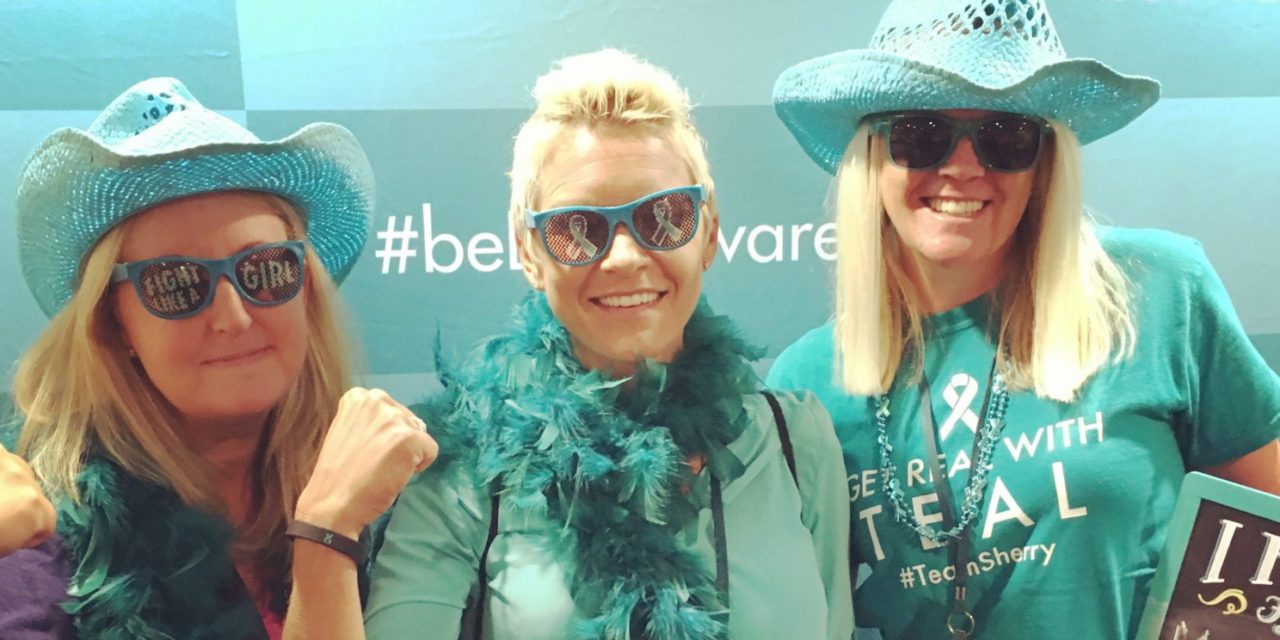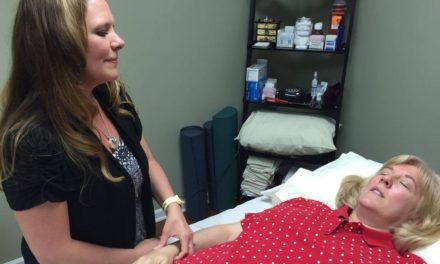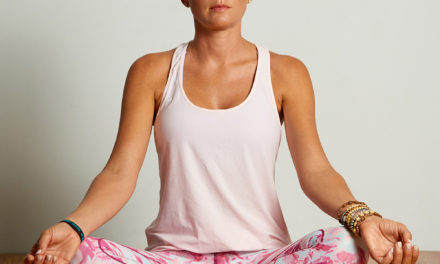Trust me when I say this post is not just for women who have fought or are fighting cancer. This post is for anyone with girl parts. Whatever you want to call them, if you’ve got them, you need to read this.
As a writer for SherryStrong.org, I was honored to attend the Ovarian Cancer National Conference in D.C. in July. I adore Sherry and would go anywhere to help her bring great content to SherryStrong.org.
But I have to admit, walking into the seminar titled “Sex and Cancer” was… intimidating! I didn’t want to encroach on sacred space shared by survivors. These women had been through enough without some writer skulking in the back. I also wasn’t sure if I would be able to relate, since I haven’t been through treatment for cancer.
Oh, how wrong I was!
Dr. Jeanne Carter from Memorial Sloan Kettering Cancer Center led the session and can put anyone at ease with her warm, conversational approach to sensitive topics. She’s like a young Dr. Ruth – energetic and candid.
The other revelation? This is not just about having or fighting cancer! The truth is, for all our Cosmo-reading, Facebook-sharing and Inter-webs searching, most women don’t have a clue about taking care of the girl parts. (Or maybe you all do and have been keeping it from me?)
More: 17 ways to show support for a friend just diagnosed with cancer
My top 4 discoveries:
- Not wanting to have sex is not really about not wanting to have sex. It’s about lacking the energy, confidence and comfort to have good sex. Favorite quote: “A tired vagina is less active!”
- Girl parts change over time, with or without cancer treatment. The answer is moisture! Hydration! Lubrication is specifically for sex – moisturizing is for life. It’s the answer to discomfort during our periods, when our parts are rubbing against a pad or liner all day long. It’s the answer to why an internal exam can be uncomfortable. It’s the answer to why bathroom hygiene can be painful.
- We’re probably all doing kegel exercises the wrong way. (Find out the right way here!)
- Women want to talk about this stuff, but we wait for our doctors to ask us – and most doctors never do! “This is a women’s health issue,” Dr. Carter said. “If you are in a relationship or not, this is important to all women.” (Read FAQs for both men and women on sex and cancer here!)
Let’s dive in. If you’ve ever felt guilty about not being in the mood for sex, forgive yourself and consider the kajillion factors that influence desire – then multiply that for women going through cancer treatment. What’s more exhausting than having toxins pumped through your body? What’s more confidence-bashing than feeling your hair fall out in clumps? What’s more depressing than facing mortality day in and day out?
More: Find support, avoid statistics

Sherry, her sister Jill and SherryStrong writer Maureen Wallace attended the Ovarian Cancer National Conference in Washington, D.C., in July.
Women fighting cancer also battle so much more: sadness, anxiety, depression. But Dr. Carter shares hope, because she believes these experiences can be overcome if we just acknowledge them and ask for help. She encourages every person to practice self care and recognize while fighting cancer is hard, no one has to go through it alone.
“We need to educate women that these things are normal but cancer makes it more challenging,” she explained. “All of this is so common! I’ve never met a woman who hasn’t had some sort of change, whether physical or emotional, transient or chronic.
“I’ve been doing this over 16 years and women always ask, ‘Is it just me?’ NO! It’s so many women!”
More: 18 ways to support a friend going through cancer treatment
Moisturizers vs. lubricants
“Moisturizers are there to help with tissue quality, and lubricants are really connected with sexual activity,” Dr. Carter explained.
She pointed out if vaginal tissue doesn’t have moisture, it can’t move. That can lead to cracking, bleeding, discomfort and outright pain, whether from bathroom hygiene, exams or intimacy. Ouch!
“If we can get rid of pain, then you will feel more confident – which goes a long way toward sexuality,” she said. “We go through so many changes and you have to mourn and adjust, but change doesn’t have to mean bad. It just means different.” Dr. Carter’s top recommendation for moisturizing: estrogen-free Replens.
According to Memorial Sloan Kettering’s website:
“Vaginal moisturizers are non-hormonal, over-the-counter products intended to be used several times a week routinely for overall vaginal health and comfort, regardless of sexual activity. It is not uncommon for female cancer survivors to need to administer vaginal moisturizers from up to three to five times per week.”
“Vaginal lubricants are usually a liquid or gel meant to be applied around the clitoris and labia minora and inside the vaginal entrance to minimize dryness and pain during sexual activity. When used properly, vaginal lubricants can prevent the irritation and mucosal tears that cause pain and increase the risk of vaginal and urinary tract infections.”
“Lubricants are a wonderful thing!” Dr. Carter told our group. “Use it on both partners, wherever you’re touching or inserting – finger, object, partner – whatever play you’re going to have, have lubricant.”
Intimacy leads to tissue friction, and you may not feel the results of that friction until you’re heading to the bathroom after intimacy, she pointed out.
Cheap kegel advice
If you’ve read any women’s magazine over the past 10 years, chances are good you’ve read about kegels as part of an article about better sex. But as Dr. Carter pointed out, pelvic floor exercises may be the cheapest investment every woman can make to ensuring a leak-free future (which doesn’t sound as sexy as, well, sex, but darn appealing in the long run).
“You’re helping to strengthen the integrity of your pelvic floor, which helps your bladder and decreases leakage,” she explained. Doing them properly is “all about organization and control.”
(I can think of no comparable situation to knowing you are in a room full of women simultaneously practicing kegels, by the way.)
More: Speaking of workouts, learn about the power of pilates
Dr. Carter offers tips for proper form:
- “You should feel like you’re closing the vagina and pulling up.”
- “If you hold for a few seconds then let go, that counts as one kegel.”
- “Increasing the number improves strength and tone, if you’re moving with organization and control.”
If you’re still a few years from fearing the leaky bladder, the sex advantages are straightforward. “Every time you do [a kegel], you move blood flow there, which naturally is going to help,” Dr. Carter said. “You can do a pelvic floor exercise anywhere and it doesn’t cost you a thing!”
Bottom line: Pay attention to your quality of life and talk to your doctor about any concerns you have. Solutions exist, and communication is the first step toward finding the one that works for you!
Coming soon: How to cope when surgery comes with an unexpected bonus: menopause!






Great information Sherry! My cousin Martin is so lucky to have you in his life! Come visit me in Jupiter some time you 2 are here please!❤️??